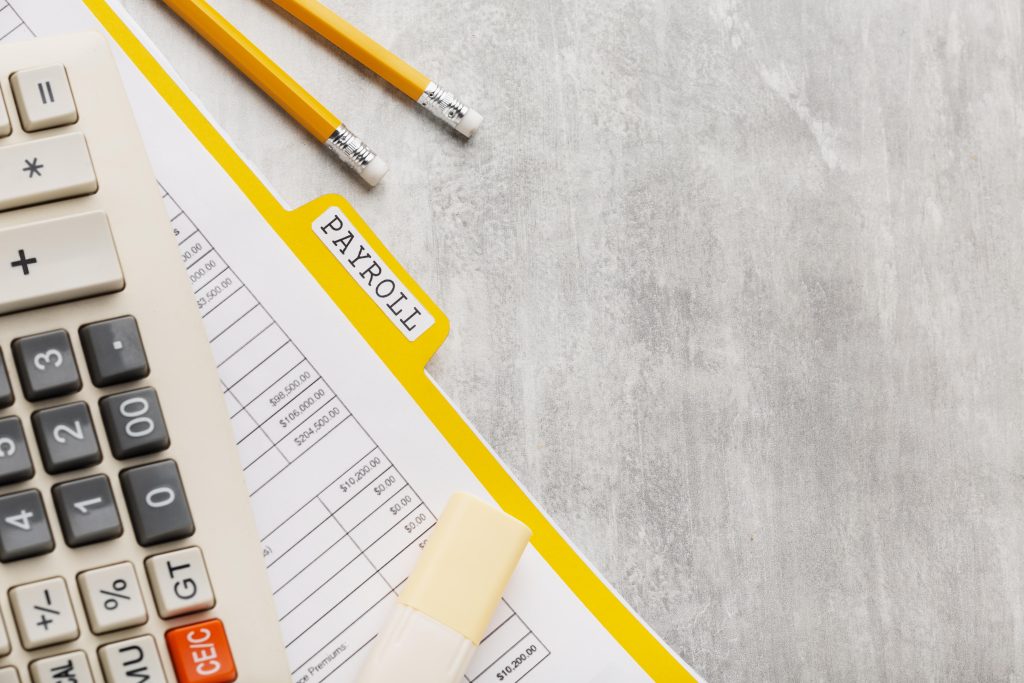What Are The Differences Between a Bookkeeper and Payroll Administrator?
2024-08-29 2024-11-19 14:45What Are The Differences Between a Bookkeeper and Payroll Administrator?
Book keeping and payroll, in the constantly changing commercial world, are just like the backbone and heartbeat for the business to stand tall and keep doing smooth by the correct path. People often get confused about these two terms when they come under the accounting umbrella.
In this article, we will dive into the differences between a bookkeeper and payroll administrator from job responsibilities, job duties and career path to help you understand these two different but similar job titles. It also explores how to enter the career of the accounting field.
So buckle up and let’s start.
Table of Contents
ToggleWhat is bookkeeping?
In general accounting diplomas or degrees, they are divided into two aspects as one subject in charge of entering all financial transactions and ensure that the data will be noted accurately on the accounting system. However payroll concentrate on wage, benefit and compensation for the employees as well as on delivering the paychecks on time and accurately.

Bookkeeping, as a definition, is the recording, calculating, and maintaining of every financial transaction in the organization in systemic and in theory as required by the tax regulations. It is one of the most fundamental operations that aid in accounting and financial management, precisely to ensure that all financial data is duly and correctly logged for decision making with useful knowledge, for budgeting and allocation.
- Financial data recording
Keep every financial transaction and record accurately into ledgers or accounting systems for auditing
- Financial data organizing
Categorizing financial records into balance sheets, income statements and cash-flow
- Income and expense tracking
Monitoring organisaiton’s income and expenses to ensure financial activities are accurately record
- Compliance in tax laws and regulations
Follow the relevant accounting standards, laws and regulations to avoid penalties
- Financial Report Generation
What is Payroll?

The primary task of payroll is to handle financial activities between the company and its employees, providing the employee with a paycheck and indicates the date of distribution on time. This includes the entering of employees’ timesheets in and the calculation of their wage, benefits and compensation to the side of regulations. Payroll professionals also generate comprehensive reports that are used for accounting audits.
- Employee compensation:
Manages accurate and timely employee compensation, including wages and salary adjustments, ensuring all are correctly reflected in the payroll system.
- Deductions:
Oversees mandatory and voluntary deductions such as taxes, insurance, and retirement contributions, ensuring compliance with legal requirements.
- Payroll system maintenance:
Maintains and updates the payroll system, ensuring accuracy, troubleshooting issues, and coordinating with IT or vendors for system compliance.
- Tax regulations compliance:
Ensures compliance with tax regulations by accurately calculating and withholding taxes, filing returns, and staying updated on tax law changes.
- Accurate Payment:
Verifies accurate and timely disbursement of wages, overtime, and bonuses, reviewing payroll reports and resolving discrepancies to meet legal and contractual standards.
Key responsibilities differences between Bookkeeper and Payroll Administrator
Key Responsibilities | Bookkeeper | Payroll Administrator |
Scope of work | Manage general financial records across the company | Focuses specifically on payroll processing and management |
Transaction type | Records financial transactions from all aspects, including sales invoices, receipts and payments | Focuses on recording and processing transactions between employees and the company, including compensation, benefits and deductions. |
Accounts Management | Receivable; payable and general ledger accounts | Manages employees’ payroll accounts |
Financial reporting | Prepares broad financial statement for company’s balance sheet, income, cash flow and other retained earning | Prepares payroll-related reports, such as payroll summaries, tax filings, and employee earnings reports |
Interaction | Work closely with accountant and auditor to establish comprehensive financial reporting | Work closely with human resource department to ensure all data is record accurately and on-time |
Policy Development | Rarely involved in policies development; follows established financial procedure from accounting system | Responsible to create payroll-related policies in regards to company’s needs and tax requirements |
Supervision | Manage and train junior bookkeeper or assistant | Manage and train payroll clerk or assistant |
Educational Requirements
Educational Requirement for a Bookkeeper:
High School Diploma or Equivalent:
Most bookkeeping positions require just a high school diploma or its equivalent (e.g., GED). It helps you get basic math and organizational skills, which is absolutely what you need for the job. (Refers to the table above).
Diploma in Accounting or Bookkeeping (optional but preferred):
Candidates who have completed a post-secondary education diploma in accounting, bookkeeping, or a related area should be more competitive. Vocational diplomas discuss vital subjects for example: financial accounting, business law, computerized accounting but they could potentially do financial operations effectively and accurately.
Bachelor’s Degree in Accounting or Finance:
If you want to take an an certified accountant or any other higher profiled role like that is high bookkeeping position or a role that involves greater responsibility. A bachelor’s degree in accounting or finance will therefore be required in accounting career development.
Educational Requirement for a Payroll Administrator:
High School Diploma or Equivalent:
Payroll administrator roles usually require applicants to obtain at least a diploma or degree in accounting, financial, or other related fields (Refers to the table above).
Diploma in Accounting or Payroll Administration (optional but preferred):
Some of the payroll administrators are required to obtain certification for specific payroll operations depending on company needs and business type.
Career Progression
Although bookkeeper and payroll administrator are responsible to handle accounting operations and financial management in the organization.
Bookkeeper:
- For a junior bookkeeper, they are responsible for executing primary financial operations, including data entry, maintaining the accounting system, and generating financial statements.
- If you obtain a accounting related diploma or higher educational qualification, you could become bookkeeper directly to oversee the entire bookkeeping process and supervise junior bookkeepers’ work to ensure all operations are in compliance with tax laws and regulations
- Bookkeepers with Chartered Professional Accountant (CPA) certificates and sufficient work experience could be promoted as accountant, public or financial accountant in large enterprises.
Payroll Administrator:
- Becoming a payroll administrator, the employee could be promoted to payroll manager who manages the whole payroll department to coordinate procedures and ensure payroll system and policies are following the legal regulations
- If a payroll administrator obtains specific certifications relating to payroll, accounting, or finance, they can get executive-level jobs in accounting or finance.
How to be a Bookkeeper or Payroll Professional?
The 2-Year Accounting Diploma with Co-op at CCC College offers a practical education to help you determine the best balance between bookkeeping and payroll administration, as the initial step in beginning your accounting career. This bookkeeping and payroll administration programme provides students with the combined knowledge and skills they need to undertake both roles in the workplace.
Bookkeeping Course: Financial Accounting 1 & 2
Financial Accounting 1 covers the basics of accounting, including the accounting cycle, internal controls, and payroll preparation, while Financial Accounting 2 expands on these topics, focusing on advanced concepts like bond amortization and financial analysis. Both 4-week courses provide comprehensive knowledge for students to understand modern accounting settings, taught by experienced instructors through lectures, exercises, and assessments, equipping students with essential accounting skills.
Payroll Administration Course: Payroll and Taxation in Canada
The Payroll and Taxation in Canada course in CCC College’s accounting diploma program provides essential knowledge of Canadian payroll and taxation systems. It covers payroll deductions for income tax, old age pension, and employment insurance, alongside payroll processing and administration. A key focus is on preparing individual and business tax returns, including applying the Goods and Services Tax (GST), equipping students with practical skills for managing payroll and taxes in Canada.
Certified Professional Bookkeeper(CPB) Canada
CCC College Accounting 2-year Diploma with Co-op will align you with Certified Professional Bookkeeper (CPB), Canada’s largest and fastest-growing certifying body of bookkeepers. Graduates will have access to a preferred student membership rate with member benefits upon the completion of the diploma, which provides access to continuing education and networking opportunities with bookkeeping professionals across Canada.
Real World Coop Work Experience
With full-time co-op work permit, students could apply their knowledge to work and enhance their employability across various industries. These valuable experiences could also help students to gain insights into industry practices, and build a network of professional contacts for their career pathway.
All-round Career Support
We value our students’ success in both academically and in their career. Co-op specialists are always here to provide a comprehensive plan to guide students through every step of their career journey, from co-op opportunities to job fairs and workshops, resume and interview preparation, and expert HR advice.
Conclusion
The fact that the difference in Bookkeeper and Payroll Administrator might get a bit confusing as some people think they are the same, though Bookkeeper is tasked with all financial transactions of the company, while Payroll Administrator is focusing on finances between the staff and the company. This is the reason why bookkeeper have better career movement because of job accountability and obligations.
Hope this article will give you a clear answer on “What is the difference between a bookkeeper and a payroll administrator?”. If you want to learn more on how to be a bookkeeper or payroll administrator, you can contact our student advisors for detailed information.
FAQ
What is the main difference between bookkeeping and payroll?
- Bookkeeping is the recording and maintenance of all the financial transactions of an organization thereby keeping data accounted for recording financial reporting purposes.
- In particular, the focus of payroll is on the management of an employee’s compensation, calculations and benefits, and deduction elimination with timely and accurate paycheck distribution.
What educational qualifications are required to start a career in bookkeeping or payroll administration?
- Bookkeeping requires a high school diploma, but to advance one will usually need a diploma or degree in accounting or finance.
- For payroll administration do, you’ll require at the very least a diploma in accounting or payroll administration, and a few of the payroll administration needs to have specific accreditation too.
What career progression opportunities are available for bookkeepers?
Junior bookkeepers become supervisors of all the bookkeeping process or junior bookkeepers. With the additional qualification of a CPA, bookkeepers can move onto roles that are senior such as accountant or financial accountant.
How does the CCC College Accounting Diploma program prepare students for careers in bookkeeping and payroll administration?
The curriculum provides coverage of both bookkeeping and payroll administration and includes students’ comprehensive knowledge and practical skills. Other courses include Financial Accountancy and Payroll and Taxation in Canada where along co-op work experience is build to improve employability.
What certifications can students pursue after completing the CCC College Accounting Diploma?
Graduates are aligned with the Certified Professional Bookkeeper (CPB) certification, Canada’s leading certifying body for bookkeepers. They also gain access to continuing education and networking opportunities through CPB membership.
Related Posts
TEF Canada Preparation: Guide to NCLC 5 & NCLC 7 in French Speaking
CELPIP reading practice test (with answer)
What’s a Good TEF Canada score?
CELPIP Writing Samples with Answers (Task 1 & Task 2)
Latest News
CCC Admission Department


Latest Posts
- How to Archive B2 Level French in TEF Canada Speaking with Examiner Insights & Strategies

- TEF Canada Preparation: Guide to NCLC 5 & NCLC 7 in French Speaking



- CELPIP reading practice test (with answer)



- What’s a Good TEF Canada score?



- CELPIP Writing Samples with Answers (Task 1 & Task 2)



- Top 12 Highest Paying Digital Marketing Jobs



- Francophone Community Immigration Pilot | New Path to Canada PR in 2025



- What is the Easiest Way to Get a PR in Canada in 2025?















